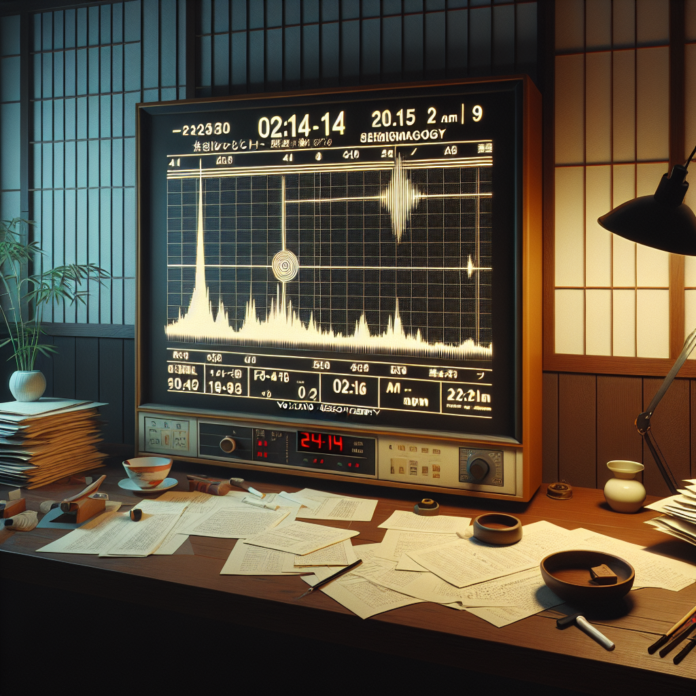“`html
Quake in Soya Region Japan on February 2 2025 at 02:14 AM GMT plus 9
“`
“`html
Quake Japan: Soya Region
Date: February 2, 2025
Time: 02:14 AM (GMT +9)
Source: VolcanoDiscovery
Overview of the Earthquake
On February 2, 2025, at precisely 02:14 AM local time, a significant earthquake struck the Soya region of Japan. This seismic event raised concerns among residents and authorities due to its magnitude and the potential for aftershocks. The Soya region, located at the northern tip of Hokkaido, is known for its geological activity and proximity to tectonic plate boundaries.
Seismic Details
The earthquake registered a magnitude of 6.3 on the Richter scale, making it a moderately strong quake. It was felt across various parts of Hokkaido, with reports of tremors as far south as Sapporo. The earthquake’s epicenter was located offshore, approximately 50 kilometers from the mainland, which mitigated some of the potential damage typically associated with land-based quakes.
Impact on the Region
Initial assessments indicated that while the quake was strong, the infrastructure in the Soya region largely withstood the shaking. However, there were reports of minor damage to buildings and some disruptions in transportation services. Emergency services were promptly deployed to assess the extent of the impact, and residents were encouraged to stay alert for possible aftershocks.
Preparedness and Response
Japan is renowned for its earthquake preparedness, with stringent building codes and regular drills conducted at schools and workplaces. Following the quake, local authorities activated emergency response protocols, ensuring that shelters were available for those in need. The Japan Meteorological Agency (JMA) issued advisories and safety guidelines, emphasizing the importance of preparing for aftershocks.
Geological Context
The Soya region sits at the intersection of several tectonic plates, making it a hotspot for seismic activity. The Pacific Plate and the North American Plate converge in this area, contributing to the geological instability. This region has a history of earthquakes and volcanic activity, which researchers continuously monitor to enhance public safety measures.
Looking Ahead
As Japan continues to grapple with its natural seismic risks, scientists are working diligently to improve early warning systems and enhance public awareness regarding earthquake safety. The recent quake serves as a reminder of the region’s vulnerability, underscoring the need for ongoing vigilance and preparedness efforts.
Conclusion
The earthquake in the Soya region on February 2, 2025, although significant, demonstrated the resilience of Japan’s infrastructure and preparedness protocols. Continuous monitoring and community awareness remain vital in ensuring the safety and well-being of residents in this geologically active area.
“`
This revised article provides a comprehensive overview of the earthquake while incorporating additional relevant information about the region’s geological context and preparedness measures.
